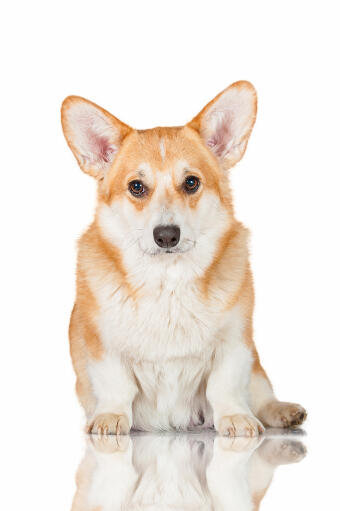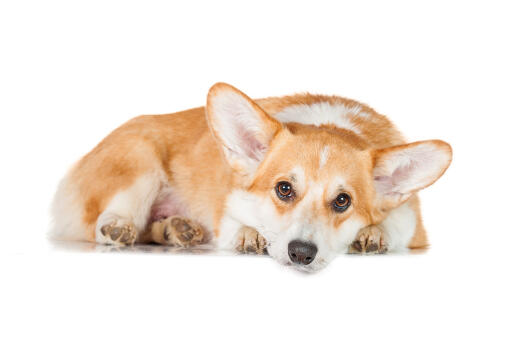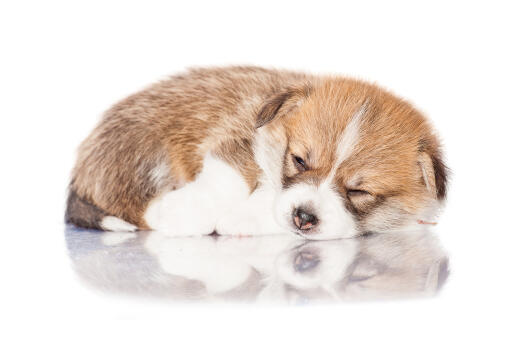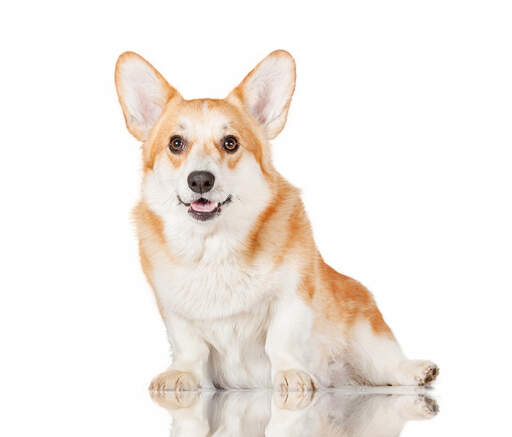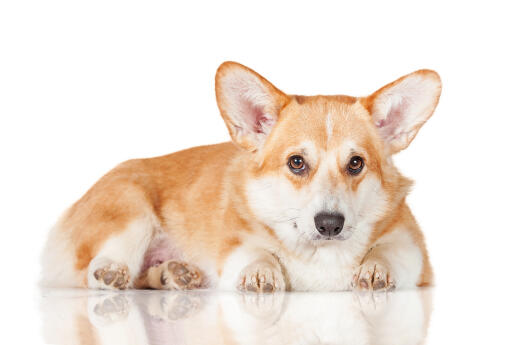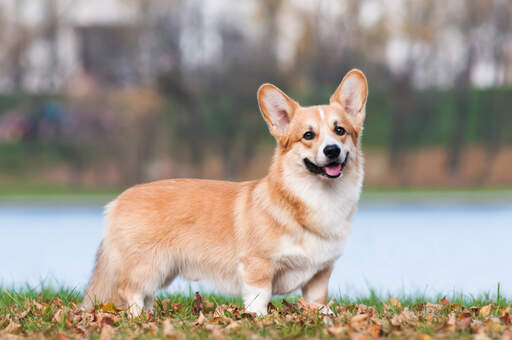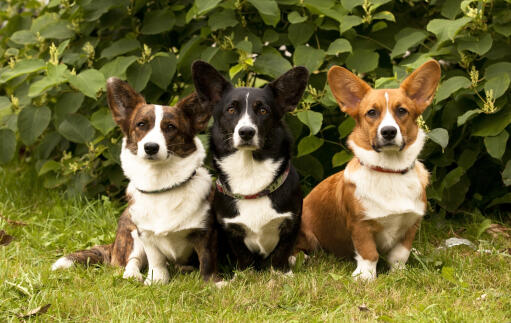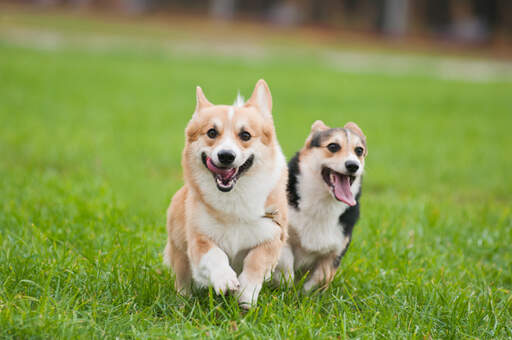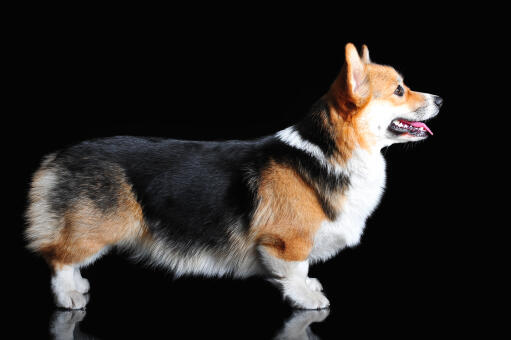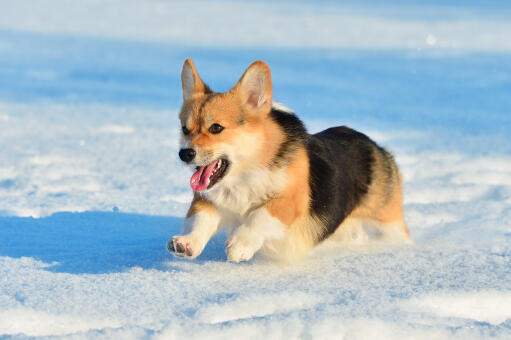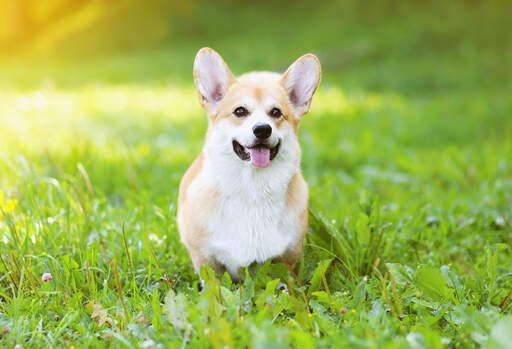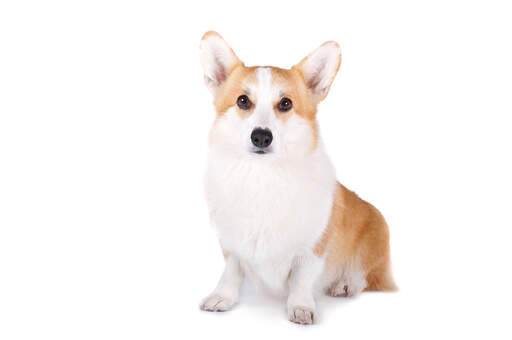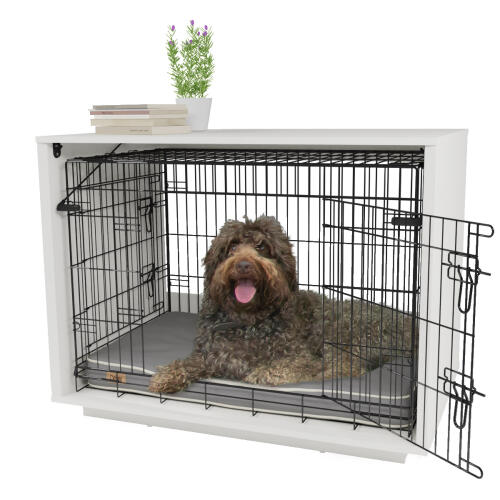Pembroke Welsh Corgi Dogs












History
The Pembroke Welsh Corgi comes from Pembrokeshire in Wales. It is believed that they are descendants of the Vallhunds (Swedish cattle dogs) that were brought over by the vikings in the 9th and 10th century. They were used to drive cattle and sheep by nipping at their feet getting them to move. Their short stance meant that they couldn’t be kicked. Corgis were first shown in the 1920s where the Pembroke and Cardigans were shown as one breed. By 1943 the two breeds were classed as separate. They are famously the favourite breed of Queen Elizabeth II.
Behaviour
Corgis are smart and quick witted dogs who love being around people. They make good pets, but sometimes try and “herd” small children. They make great watchdogs and will bark at the slightest disturbance. Barking can become a problem as they seem to love the sound of their own voice and will use it at any chance they get. The “quiet” command is vital. They can be reserved with strangers at first, though given some time they will become friendly. Some individuals can become possessive of their family, so make sure to keep an eye out for this.
Despite being on the smaller side, this dog is very smart. They have an eagerness to learn and they will want to be kept busy at all times. Training is relatively easy with this breed, though they can be stubborn at times. Food based rewards and positive praise all work well. Activities such as agility are also good fun for them and help keep their minds and body active. They need a lot of exercise and will spend a lot of time sniffing around and exploring their surroundings when outside. Their recall is also good when trained. ONce they’ve received all the exercise they need, Corgis will be happy to snuggle up next to you on the couch and doze off. They are very in tune with the feelings of those around them and will come to give you a cuddle if they feel that you need it. They are still independent minded and won’t act as a servant to you, though they do usually do what you ask of them. They are very loyal dogs and are devoted to their family.
Their coats will need brushing a couple of times a week to keep it looking good, Corgis can be prone to obesity as they will eat anything and everything, be sure to keep an eye and their diets and not to over feed them. When playing with children their herding instincts may kick in and they might try to have a nip at their ankles. Consistent training can help curb this.
Temperament
Pembroke Welsh Corgis have interested plucky temperaments. They love to run and play with surprising athleticism for a dog with such short legs. Give them plenty of companionship and you will have one very happy dog. They are friendly with other pets and happy to meet new people. When playing with children their herding heritage may take over with them trying to herd children through heel nipping which needs to be discouraged through consistent training.
Health Problems
Health problems that may affect Pembroke Welsh Corgis include intervertebral disc disease (pressure on spinal cord that can cause paralysis), canine hip dysplasia (CHD), cataracts, progressive retinal atrophy (PRA: degeneration of the retina which can lead to blindness), cataracts, epilepsy, blood clotting disease, allergies and heart disease.
Breed Details
- Status: Common
- Life Expectancy: 12 - 15 years
- Weight: 20 - 30 lbs
- Height: 10 -12"
- Rare: No
- Coat: Short
- Grooming Requirements: More than once per week
- Town or Country: Either
- Minimum Home Size: Small House
- Minimum Garden Size: Small to Medium Garden
- Breed Type: Herding
- Size: Small
- Energy Level: Medium
- Exercise Required: Up to 1 hour

